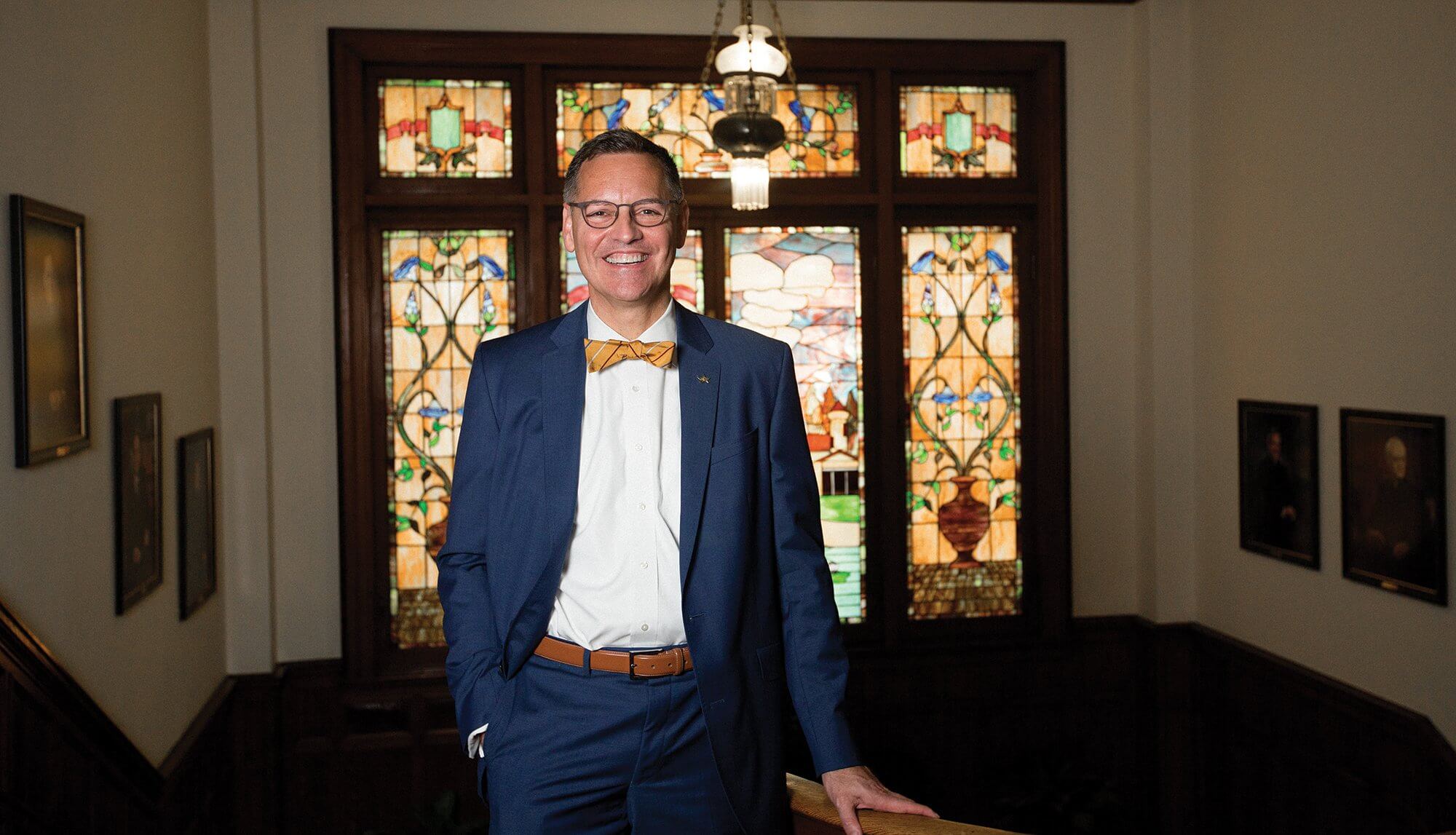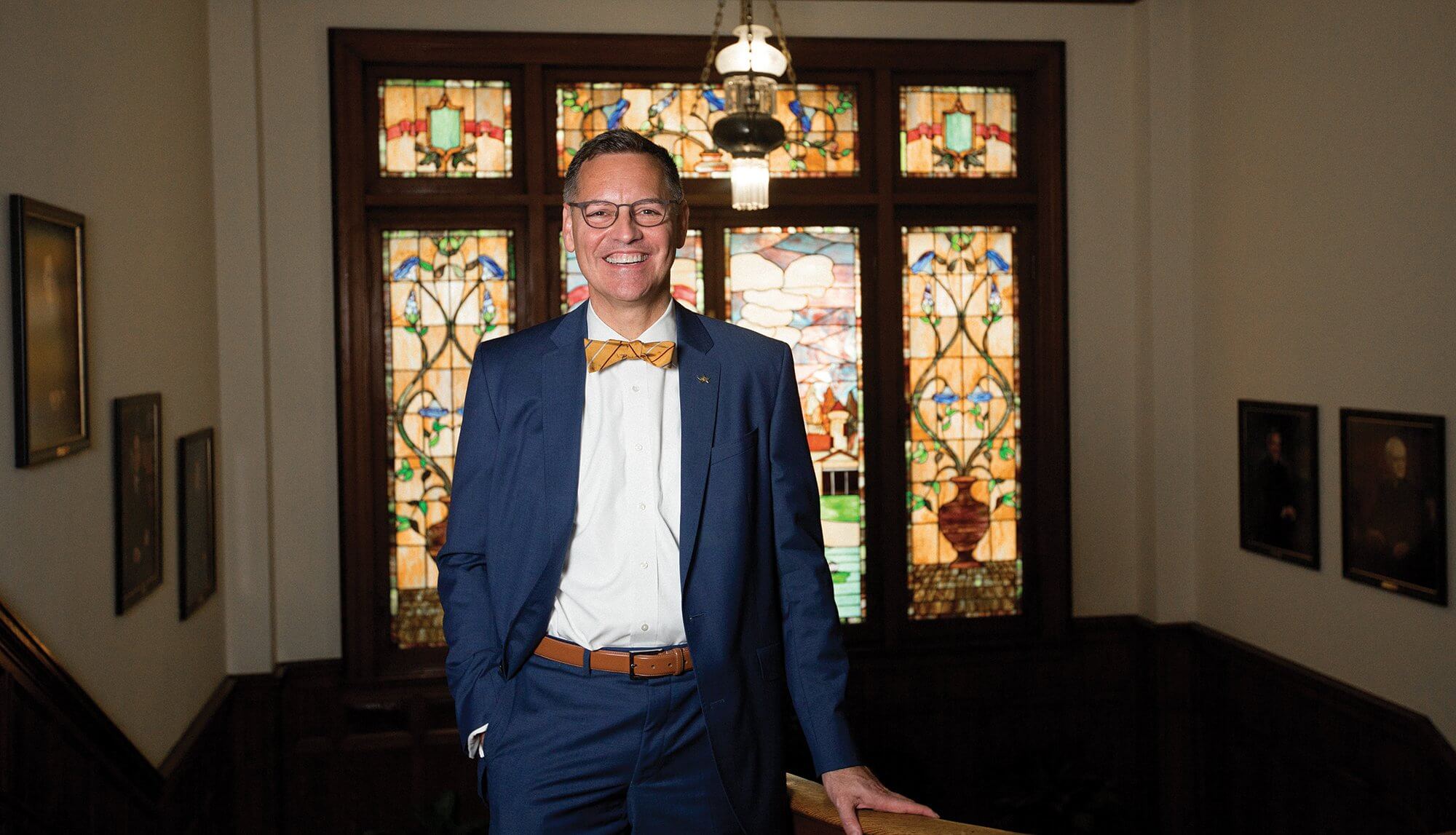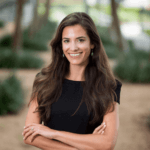Spotlight: Richard L. Ludwick, J.D., D.Ed.

Q | Why University of St. Thomas?
A | For me personally, that is an interesting discussion. About 15 years ago, I sat down and made a list of colleges that I thought matched my personal motivation for service and had some other things—diversity within the student body and faculty, an urban location, a fit between meaning and method. I made a list of 10 colleges that I thought fit that very nicely. The University of St. Thomas was in the top five of that list—and that was 15 years ago. As time went by and I had occasion to learn more about UST, I was more convinced that it was the right place to be. It came to pass that Dr. Robert Ivany, UST’s last president, announced that he would retire, and I just threw my hat in the ring, like I’m sure so many others did. Whether it was providence or just the measure of the search, they asked me to join them and I was more than delighted to do that. Part of my background, too, matches very well with the mission, the DNA of the University of St. Thomas as a Catholic institution in the Basilian tradition. Goodness, discipline, knowledge and community are things that are not just a tagline but are lived out here, and that is something that resonates deeply within me.
Q | You are very active in the Catholic church and the Knights of Columbus. Is being Catholic an essential part of leading a Catholic university?
A | We talk a lot here about the notion of vocation, the understanding of the gifts that one has and how they are able to continue God’s creation by having those gifts and bringing them to the fore. For me, that’s a natural outgrowth of my faith and the ability to bring it to full blossom in service to this university. Certainly, there are some who are not Catholic who are skilled leaders within a Catholic university, but I think it is one of those things that gives you an additional level of understanding.
Q | You have held leadership positions at several institutions, including the University of Oregon School of Law and the University of Florida Levin College of Law. Would you say you have a certain leadership style?
A | I believe that there is wisdom in decisions of the crowd. I try to create an atmosphere—an environment—where creativity can flourish and the best ideas come forward. And with any luck at all, we will come up with the right ones.
Q | UST’s previous president, Robert Ivany, Ph.D., left some pretty big shoes to ll. How do you hope to expand on his work and make your own mark on campus?
A | He is … we actually wear the same size shoes.Dr. Ivany does leave big shoes to fill and certainly you can look at the accomplishments that he has had—the seminal one at the end here is UST’s new Center for Science and Health Professions. I think he has a particular gift in developing relationships with donors and those outside the community, so that is certainly an area that I hope to continue and develop. I also think that it is useful to have someone with a slightly different skill set come along. I see myself in that way, having worked with student affairs in the past
and having been an academic leader on another college campus.
Q | UST sits in the heart of Houston, with close proximity to many resources, including the Texas Medical Center. Are you looking forward to a continued partnership with the TMC?A | This has been a real eye-opener for me to come to this community and learn more about the Texas Medical Center. I am not necessarily a native in the health care field, however my wife is a pharmacist and she has worked for both small and very large health systems in the past. She has a head start on me, of course, in understanding what the Texas Medical Center is and what it does and how the University of St. Thomas can fit within that. We are a relatively new member of the medical center, and I think we are just now scratching the surface of what that relationship means. We will look for ways to engage and to push the envelope of innovation in terms of how academics and health care can work together.
Q | You and your wife, Melynda, have two children. Where are they now?
A | We have our daughter, Christiana, she is in Indianapolis, and her husband, Michael. They have two children, Gabriel and Pia, so we are grandparents and we are very excited about that. Our son, Richie, is currently in Indianapolis, but he has taken a new job at a consulting firm in south Florida.
Q | You are the ninth president of UST. What are the biggest challenges that have arisen since you started in July?
A | You always have surprises and challenges that come along daily. One day it might be meeting the new freshman class and shaking all of their hands, and the next day it might be talking to people about how the new costume for our mascot, Lenny the Lion, might look. Then you have some that are sad and very challenging. I certainly didn’t expect that something called ‘Harvey’ would strike our city, but it did. People are suffering, including some of our own students, faculty and staff at UST. But the incredible compassion and spirit of resilience I’ve witnessed at UST and across the region is truly extraordinary. Something like this requires a community response, and our campus community is responding, not only with action, but with care and love. We’ve dubbed it #CeltCare, and it’s a multi-disciplinary approach to assessing needs and helping those who were adversely impacted by Harvey. We’re speaking to each student, faculty and staff member individually, and if they need help, we’re doing all we can to act quickly and provide assistance. Thankfully, generous donors and volunteers are stepping up to help us, and that help comes in different forms, from financial assistance with tuition, books and other school-related expenses, to flexible scheduling, carpools, counseling and opportunities for community fellowship. The goal is to keep our students in school, because I really believe that the education we offer makes our graduates hurricane-proof, in a sense. It will empower them financially, emotionally and spiritually to handle life’s challenges—even ones like Harvey. You just never know what the day will present, but we have the confidence and the faith to know that the Lord works good for all those who love Him, and we do.
Richard L. Ludwick, J.D., D.Ed., was interviewed by Pulse reporter Britni N. Riley. This interview has been edited for clarity and length.





